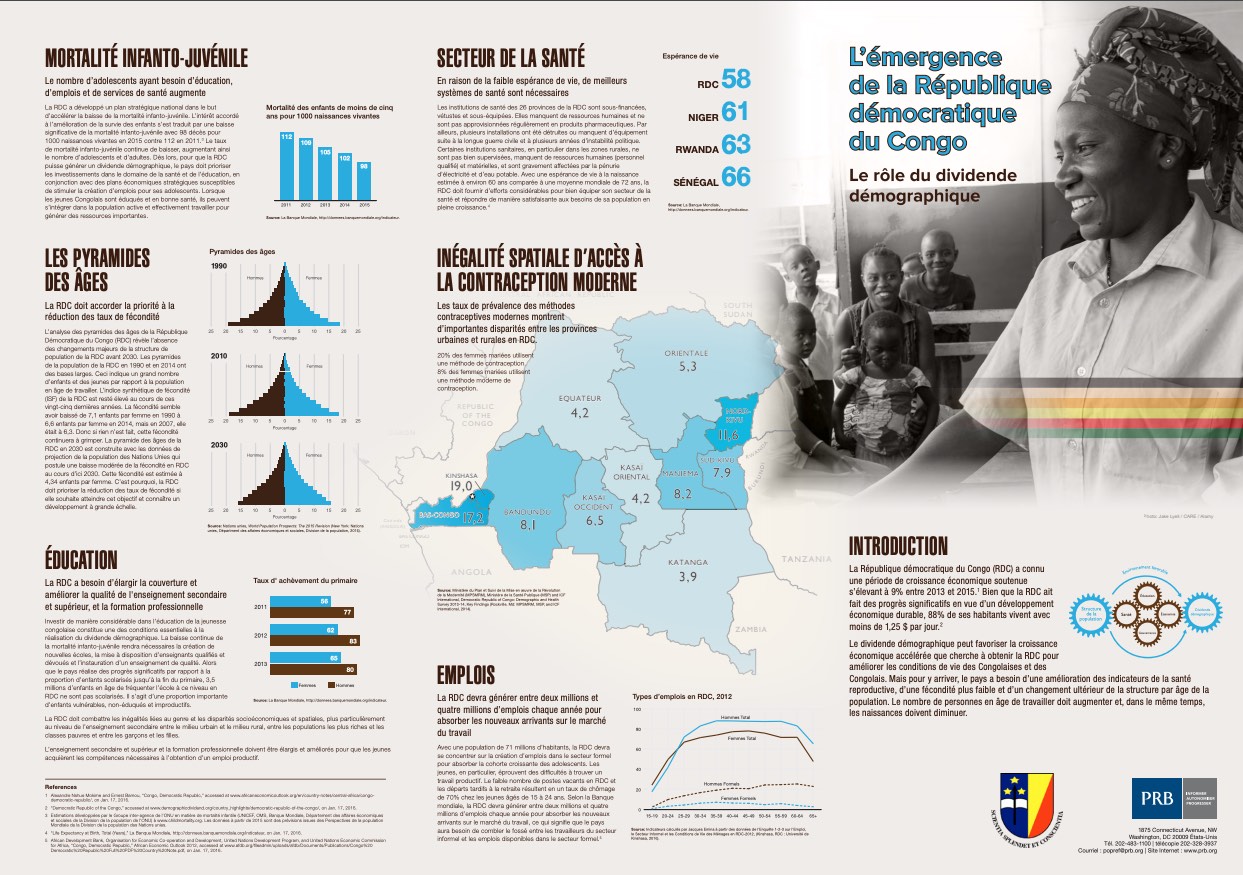The Democratic Republic of Congo (DRC) has experienced a period of sustained economic growth, averaging about 9 percent between 2013 and 2015. Although the DRC has made significant progress towards sustainable economic development, 88 percent of its inhabitants live on less than $1.25 a day. This wall chart, currently only available in French, explains how a demographic dividend can promote accelerated economic growth to improve the living conditions of Congolese citizens.
To succeed, the country needs to first focus on improving reproductive health indicators that will aid in lowering fertility, leading to a subsequent change in the age structure of the population. The number of working-age people must increase, and at the same time, births must decrease. In order for the DRC to see a more empowered working-age population, a multisectoral approach to national investments is key. From health care to job creation to improved education, calculated investments must be made in order to advance development and realize a demographic dividend in the DRC.
You can learn more about the demographic dividend on our partner site.
PRB Webinar: Mapping Research Approaches to the Demographic Dividend
The demographic dividend offers a powerful argument linking population dynamics and economic development. This topic has attracted a wide variety of researchers and international development organizations and has recently gained traction among global policy audiences. However, research approaches to the demographic dividend are varied and a greater integration of the methodological approaches may be warranted. Current research approaches vary widely in:
- Implicit definition of dividends (from narrow to broad).
- Mechanisms implied (from mechanical to substantive influences).
- Analytical strategies (notably the extent to which they attend to questions of internal, external, and ecological validity, and their appeal to academic vs. policy audiences).
In this webinar, Marlene Lee, program director of Academic Research and Relations at the Population Reference Bureau, introduced the concept of a demographic dividend. Parfait Eloundou-Enyegue, professor in Development Sociology and Demography at Cornell University, outlined different research approaches to the demographic dividend. Eloundou-Enyegue shared how each approach addresses key criteria, and thus how it is likely to appeal to academic researchers versus practitioners. He presented a new framework for better understanding the range of methodological approaches to this topic using the criteria of the scale of analysis (individual vs. country) and main target audience (academics vs. policymakers).
Their discussion was followed by Q&A.
This webinar was hosted by the Population Reference Bureau, with funding from the David and Lucile Packard Foundation.


 ">
">